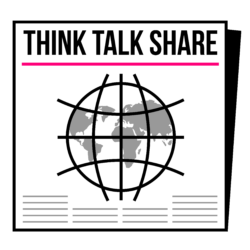Education. As Americans, we pride ourselves on how great education is in our country. We look down upon countries with lower levels of educational achievement, and education is our first solution to all the world’s problems. As a Model United Nations delegate, I can say with certainty that in every delegate’s resolution paper, “education” is always number one on the solution list. Education should prepare us to adapt to our surroundings and to solve problems. So why doesn’t our current high school curriculum fulfill this role?
I am fluent in trigonometry and can analyze an author’s rhetorical choices in English, but I am uncertain how to practically apply that knowledge to combat climate change, to change the culture fostering gun violence, or to stop the spiraling crisis of drug abuse. Our curriculum focuses on classical liberal arts yet does not provide us with the tools to apply this education to these critical issues.
Many may argue the liberal arts education I am receiving now is perfectly fine to get me where I need to go: I can apply the work ethic I have learned from music class to the sports I play or the scholarships for which I am applying. I can apply the writing rubrics I learned in my English class to write this very blog post. But it is not enough. The prior generation has not taught us anything about how to combat the real world problems we are facing today, many of them inherited from that generation. For this reason, my peers and I need to take charge of our education. We have to stretch the “nuts and bolts” education farther. We need imagination. We need better tools. We need analytical skills.
As we enter into 2020, a new decade, we need to focus our education system on more than just mathematical fluency and writing English essays. I am being encouraged to think critically and for that reason I ask these hard questions about our world. Now someone needs to revamp the curriculum to teach the practical application of this knowledge. We have this idea that the only people who can make change are those officially elected: governors, legislators, mayors. It has been ingrained into our brains through the public education system and the hierarchy of our culture to respect authority. Kids should not talk back. Kids should not question what they are told as fact. But the education we are missing is exactly that. How to speak up for what you believe in no matter your age, no matter if you have a college degree, no matter if you have run a successful political campaign. Young people, like Greta Thunberg among others, are creating a culture of change by challenging the status quo. Our education system needs to be reimagined and transformed to recognize that young people have the ability to lead and to teach students how we can take what we learn in the classroom and apply it to the issues in our communities that require change.


